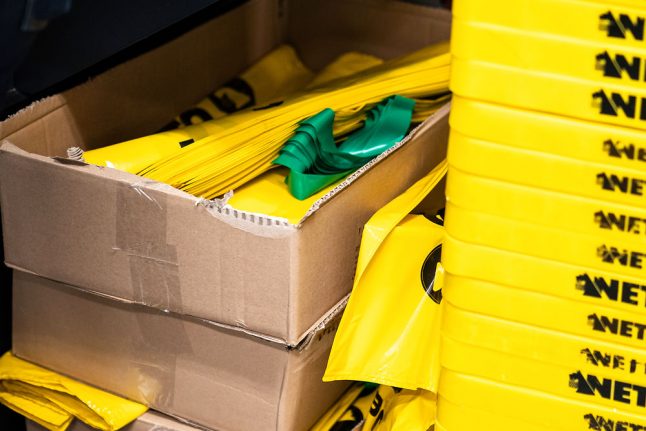All carrier bags with handles will cost a minimum of 4 kroner from next year.
That includes paper bags, provided they have handles.
This is because a broad parliamentary majority has passed a bill forbidding businesses from giving carrier bags to their customers without taking payment, and increasing the charge for doing so, as DR reports.
Thin, clear plastic bags used for fruit and vegetables and paper bags for pick-and-mix sweets are not covered by the legislation.
But single-use, thin plastic bags – think of the type used to carry takeaway food containers, which are translucent but often blue or pink – are already banned. The bags must be thinner than 0.15 micrometres and without handles to be excluded.
That ban has already been ratified by the EU, in an effort to see an end to lightweight plastic bags which can be blown out to sea.
If you need a stronger plastic bag to carry your groceries home from the supermarket, you will have to pay a fee.
All plastic carrier bags thicker than 30 micrometres, with or without handles, will cost at least 4 kroner. The price can be set by the environment minister.
Bags made of materials other than plastic and with handles will also be encompassed by the charge.
Bags not made of plastic and without handles – such as paper bags used for loaves of bread from the baker – are not subject to the extra charge.
Thin, small handle-less plastic bags for fruit and vegetables have also been exempted for hygiene reasons.
Sources: DR, retsinformation.dk
READ ALSO:



 Please whitelist us to continue reading.
Please whitelist us to continue reading.
Member comments